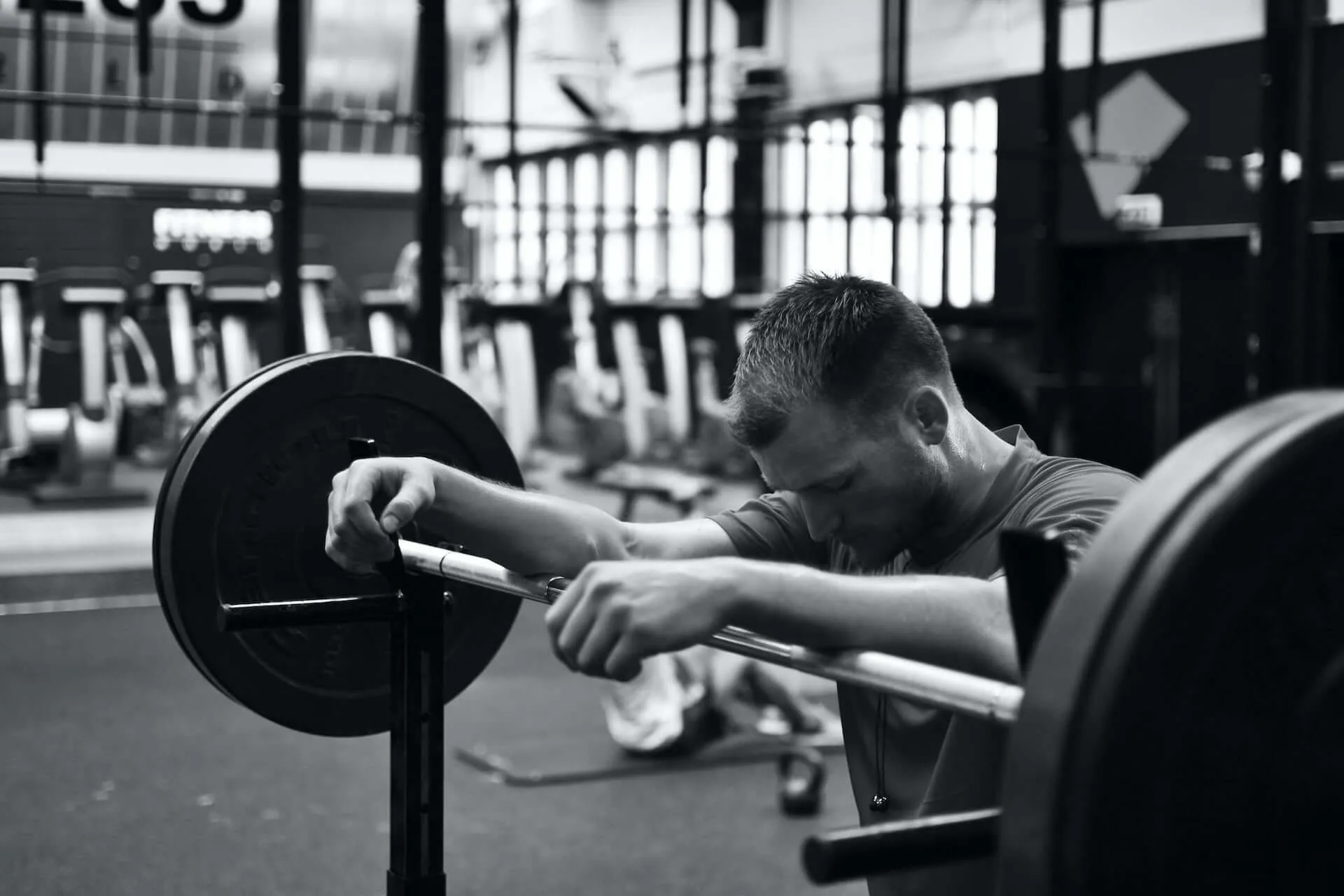While many things impact your energy levels throughout the day, including sleep, exercise, and stress, your diet may have the biggest impact. Everything you eat gives you energy in the form of calories, but while some nutrients may leave you feeling ready to take on the day, others can leave you feeling fatigued and drained, even though they provide plenty of calories.
If you want to feel alert, focused, and energized after eating, you’ll want to include more foods that give you sustained energy and fewer foods that leave you feeling sluggish. Keep reading to learn how to stop feeling tired after eating, what foods give you energy, and the best foods for each meal and snack to feel your best each day.
{{mid-cta}}
What Types of Food Give You Energy?

When it comes to fueling your body for the day, the types of foods you choose make a big difference in how you feel. Foods that give you energy are typically nutrient-dense, meaning they pack a lot of vitamins, minerals, and other essential nutrients into a small amount. In other words, every calorie offers maximum value.
Nutrient-rich whole foods can help stabilize blood sugar levels, prevent energy crashes, and support overall health. Other foods that can greatly improve your energy levels include those rich in water, which helps maintain adequate hydration, and iron, which helps support your blood oxygen levels.
Focusing on these energy-boosting foods can help you maintain steady energy levels throughout the day, making it easier to stay alert, focused, and ready to tackle whatever comes your way.
- Nutrient-Rich Whole Foods: Whole foods like fruits, vegetables, whole grains, nuts, and seeds are packed with essential nutrients like complex carbohydrates, fiber, B vitamins, and minerals like magnesium that your body needs to function optimally. These foods provide a steady release of energy, which helps regulate blood sugar levels and provides the nutrients needed to convert energy from your food into energy your body can use. Including various foods in each meal and snack throughout the day can help you avoid energy slumps and keep you feeling energized.
- Iron-Rich Foods: Iron is an essential mineral that helps transport oxygen from your lungs to every system and cell in your body. Without enough iron, you might feel tired and sluggish. One of the most common and first symptoms of iron deficiency anemia is feeling tired and short of breath. Incorporating iron-rich foods like lean meats, spinach, lentils, and fortified cereals into your diet can help keep your energy levels up.1
- Water-Rich Foods: Your body is made up of 55 to 65 percent water, and even a small drop in that can cause dehydration symptoms such as fatigue, headaches, and dizziness as your blood pressure drops and heart rate and body temperature increase. So, while water doesn’t provide calories, staying hydrated is key to beating fatigue. Foods like cucumbers, watermelon, and oranges help keep you hydrated and provide vitamins and antioxidants that support overall health.2
<div class="pro-tip"><strong>Also Read: </strong><a href=how-much-water-should-you-drink-a-day>How Much Water Should You Drink in a Day</a></a>.</div>
Best 4 Foods That Give You Energy

Eating the right foods can help you feel more energized, whether you’re struggling to wake up in the morning or consistently hitting a 3 pm slump at your desk. Instead of reaching for a cup of coffee or an energy drink to power through, consider adding more energy-boosting whole foods to your meals and snacks.
1. Complex Carbohydrates
While your body can use all calories for energy, carbohydrates are its preferred source. Refined carbs get most of their calories from sugar, which gives your body a quick energy boost, while complex carbs have sugars, fiber, and starch.
Adding fiber and starch helps slow digestion, so a steady energy supply is released into your bloodstream over hours instead of minutes. This is why you may see a slower rise in blood sugar when you eat brown rice instead of white rice or whole grain bread instead of white bread, which has had some fiber removed in processing.
Complex carbohydrates include foods like:
- Whole grain bread and pasta
- Quinoa, farro, brown rice, bulgur, barley, and oats
- Legumes, including lentils and chickpeas, black beans, pinto beans, and kidney beans
- Starchy vegetables like potatoes, squash, corn, and peas
- Fruits
2. Healthy Fats
Your body can use fats as energy if you aren’t eating enough carbohydrates, although it will only burn through fat once you’ve used up all the available glucose from carbohydrates. Even when eating balanced meals and snacks that include carbohydrates, fats help prevent dips in energy by slowing down digestion for a steady release of energy.
Opting for healthy fats like polyunsaturated fats, including omega-3 fatty acids and monounsaturated fats, helps improve cholesterol levels and inflammation and reduces the risk of insulin resistance when eaten as part of a balanced, healthy diet.3, 4
Foods rich in healthy fats include:
- Olive, avocado, sunflower, walnut, and flaxseed oils
- Nuts like peanuts, almonds, cashews, and pistachios (including peanut butter and other nut butters)
- Seeds like flax seeds, chia seeds, hemp seeds, sunflower seeds, and pumpkin seeds
- Fatty fish like salmon, sardines, and tuna
- Seaweed and algae
3. Protein-Rich Foods
Like fats, protein helps slow digestion for an even release of energy. Your body will only directly use protein for energy if it’s already used the carbohydrates and fats available. This is a good thing since we want the protein we eat to repair and build muscle tissue and its other essential functions.
While protein doesn’t directly provide you with energy most days, it is broken down into amino acids that are essential for turning food into usable energy. Pairing high-protein foods with healthy fats and complex carbs at meals and snacks can help you feel focused, alert, and awake, even hours after you’ve eaten.5
Protein-rich foods include:
- Lean proteins like chicken, turkey, sirloin, and pork tenderloin
- Fish and shellfish
- Eggs
- Dairy products like milk, Greek yogurt, and cottage cheese
- Beans, lentils, peas, and hummus
- Soy foods like tempeh and tofu
- Nuts and seeds
4. Fruits and Vegetables
If you need another reason to eat the rainbow, beating fatigue is it. Whole fruits and vegetables can boost energy levels by providing complex carbohydrates, vitamins, minerals, and water. These nutrients help support energy production while contributing to better overall health and well-being by providing antioxidants to fight oxidative stress and nutrients like vitamin C to support immune health. For example, leafy greens are high in B vitamins, which support energy production at a cellular level; iron, which helps transport oxygen to your cells; and fiber, which keeps your bowels functioning well and slows down the digestion of carbohydrates.
3 Tips to Incorporate Energy-Boosting Foods into Your Meals
If you’re tired, just thinking about how you’ll fit these energy-supporting foods into your diet, don’t sweat it! With just a little planning, you’ll have everything you need to feel your best all day long and tackle anything that comes your way. Follow these tips to sneak more energy boosters into your day.
Prepare Your Meals Ahead of Time
If you have a few meals planned and prepped in advance, you’ll be less likely to skip a meal or reach for an unhealthy option. If the idea of prepping entire meals already has you feeling exhausted, try batch-cooking a few healthy options instead. This way, even on your busiest days, you can easily put together a balanced meal to keep your energy levels high.
Try:
- Batch cooking whole grain options like brown rice, oats, or quinoa.
- Roasting a pan of vegetables that can be added to your meals.
- Cooking a few servings of protein like chicken, steak, or tofu.
- Freezing packs of smoothie ingredients so you can quickly blend and sip.
Combine Them With Foods You Already Eat
One of the easiest ways to eat more energy-boosting foods is to pair them with those you already enjoy. For example, add some spinach or avocado to your morning smoothie, mix nuts or seeds into your yogurt or oatmeal, or toss some lentils or beans into your salad.
By combining these nutrient-rich foods with the meals and snacks you’re making and eating, you’ll eat more nutrient-dense meals without feeling like you must overhaul your entire diet.
Keep Energizing Snacks on Hand
Because life happens, you’ll inevitably get stuck in a situation where you’re skipping a meal or snack. To avoid feeling depleted of energy when you’re stuck in traffic or behind your desk at work, keep a stash of shelf-stable energizing snacks in your bag, drawer, and car.
Nuts, seeds, dried fruit, whole grain crackers, and protein bars are quick to eat and easy to store. They provide a much-needed nutrient boost and prevent energy dips throughout the day.
Using a CGM with Signos: Real-Time Data, Backed by AI
Signos pairs a real-time glucose biosensor with AI trained on tens of millions of data points to deliver personalized, science-backed guidance for weight management and health. See exactly how your body responds, and take action.
Learn how it works. Ready to get started? Join now.
<div class="pro-tip"><strong>Learn More: </strong><a href=how-to-get-energy-naturally>How to Get Energy Naturally: 10 Science-Backed Tips</a>.</div>
Topics discussed in this article:
References
- National Heart, Lung, and Blood Institute. (2022). Iron-deficiency anemia. National Institutes of Health. https://www.nhlbi.nih.gov/health/anemia/iron-deficiency-anemia
- Taylor K, Jones EB. (2022). Adult Dehydration. https://www.ncbi.nlm.nih.gov/books/NBK555956/
- DiNicolantonio, J. J., & O'Keefe, J. H. (2022). Monounsaturated Fat vs Saturated Fat: Effects on Cardio-Metabolic Health and Obesity. Missouri Medicine, 119(1), 69–73.
- Liu, A. G., Ford, N. A., Hu, F. B., Zelman, K. M., Mozaffarian, D., & Kris-Etherton, P. M. (2017). A healthy approach to dietary fats: understanding the science and taking action to reduce consumer confusion. Nutrition journal, 16(1), 53. https://doi.org/10.1186/s12937-017-0271-4
- Chandel N. S. (2021). Amino Acid Metabolism. Cold Spring Harbor perspectives in biology, 13(4), a040584. https://doi.org/10.1101/cshperspect.a040584




.svg)





.webp)



.jpeg)
.svg)
.svg)
.svg)
.svg)
.svg)
.svg)
.svg)
